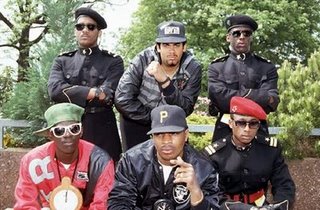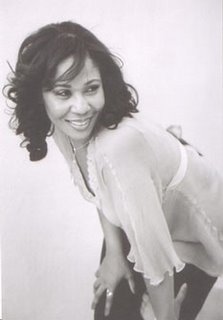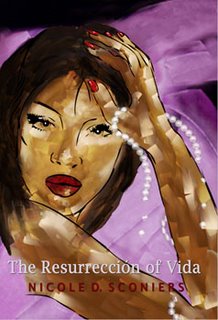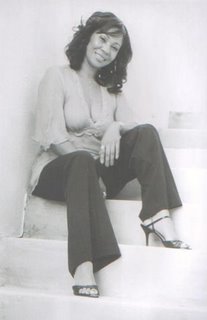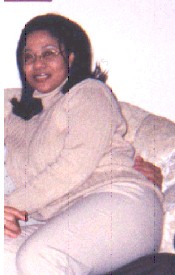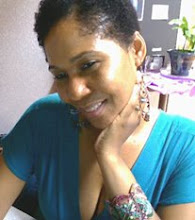Blacks and Immigration Reform
“I’ve been wonderin’ why
People livin’ in fear
Of my shade (Or my hi-top fade)
I’m not the one that’s runnin’
But they got me on the run
Treat me like I have a gun
All I got is genes and chromosomes
Consider me Black to the bone…”
- Public Enemy
“Fear of a Black Planet”
When Chuck D. rapped the above lyrics with his trademark fist-in-the-air inflection, he was not only affirming his blackness, but also rhythmically rebelling against police brutality, racism and the disenfranchisement of African-Americans. It was 1990. The socially conscious hip-hop movement boldly ushered in a brand of nationalism that appealed to young blacks who otherwise felt powerless. It was hip to be as visible as an Afro pick and just as defiant. Red, black and green medallions abounded, sentences were peppered with Malcolm X rhetoric, and tee shirts gleefully proclaimed, “It’s a Black Thing, You Wouldn’t Understand!” The revolution thrived on the majority culture’s perceived fear of empowered minorities, and it declared to the world that blacks were on the come-up and would no longer be marginalized.
The recent Latino-led protests over immigration reform are tinged with the same bravado of that hip-hop movement. Mexican flags and culturally conscious tees like “I’m in my homeland” and “We didn’t cross the border, the border crossed us” at the marches signify that brown folks are no longer trying to get in where they fit in. Like blacks, they are affirming their identity and broadcasting their disenchantment with a society that seeks to criminalize and dehumanize them.
So, I wonder why as an African American, a member of a fellow oppressed group, I don’t feel solidarity with the struggle of mi hermanos and hermanas. I try to pinpoint the emotion I feel when faced with the televised spirit of la raza, the sea of chanting, protesting, marching, Latinos.
I’m ashamed to admit that it is fear.
 I wrestle with this because it’s not like I’m some xenophobic, ultra-conservative, border-patrol fanatic. I consider myself conscious (semi, some would say), have friends of all races, have dated Mexicans and know that the struggle for human rights is not “their” struggle, but our struggle. And yet, I can’t shake this feeling of uneasiness when I see Latino students leaping over schoolyard fences to join protests and watch brown crowds shutting down traffic on the 110 freeway.
I wrestle with this because it’s not like I’m some xenophobic, ultra-conservative, border-patrol fanatic. I consider myself conscious (semi, some would say), have friends of all races, have dated Mexicans and know that the struggle for human rights is not “their” struggle, but our struggle. And yet, I can’t shake this feeling of uneasiness when I see Latino students leaping over schoolyard fences to join protests and watch brown crowds shutting down traffic on the 110 freeway.Sadly enough, I’m not alone. An observant blogger at slate.com mused over the lack of black faces at the 500,000-strong protest in Los Angeles, and also the silence of black leaders on immigration reform. Author and political analyst Earl Ofari Hutchinson explores this growing sentiment (resentment?) in his three-part article “Why So Many Blacks Fear Illegal Immigrants.” In the piece, Mr. Hutchinson observes that black frustration with immigration is nothing new. In 1994, nearly fifty percent of African Americans backed Proposition 187, a measure that denied public services to undocumented immigrants. He also points out that in California, Blacks have significantly supported anti-bilingual ballot measures.
Is it that we fear competition, and these political moves are our way of keeping Latinos in their “place”? I don’t belong to that frustrated black chorus accusing illegal immigrants of taking “our jobs.” By and large, Hakeem is not cleaning toilets, washing cars, slaving over a stove or engaged in other menial tasks. Hector is. Besides, many of the posts I’ve been reading in support of tightening our borders are from middle- to upper-class blacks who are liberal in their politics. It’s distressing to admit that we can be just as biased and intolerant as the majority culture can be.
I wonder if rising black-and-brown tension over immigration reform is simply masking an unspoken, perceived threat of African-Americans being supplanted as the “default” minority in America? After all, statistics remind us that Latinos now outnumber blacks in this country. Advertisers are going after their dollars, politicians are going after their votes and the entertainment industry is capitalizing on their culture. Do we hesitate to link arms with our Spanish-speaking brothers and sisters and sing “We Shall Overcome” for fear of contributing to the “Latinoization” of America? Do we fear that it will no longer be a black thing, but a brown thing – from hip-hop to ‘hood films to Capitol Hill?
These are difficult questions, and I don’t have any easy or quippy answers. What I do know is this: As members of historically-disadvantaged groups, Latinos and blacks can each relate to feelings of displacement and an outside fear of our respective cultures. As much as we scorn the American nightmare, we're all hustling to achieve the American dream. We want better lives for our families, better jobs, and an acknowledgement of our individual contributions to this country. Border control should start with eradicating la linea that separates us.
 In “Fear of a Black Planet,” Chuck D. also raps: All I want is peace and love/On this planet/(Ain't that how God planned it?) This admission almost seems like a non-sequiter considering the defiance and separatism inferred from the previous verses. And that’s really a metaphor for the dialogue on anti-illegal alien legislation going on in the black community. As compassionate, conscious folk, I really believe that we seek to build bridges with other minorities, and yet we still want to maintain our identity and nationalism in this patchwork quilt that is America. I wonder if we will ever get to a point in the discussion where it’s not a black thing or a brown thing, just an us thing? Now that would be revolutionary.
In “Fear of a Black Planet,” Chuck D. also raps: All I want is peace and love/On this planet/(Ain't that how God planned it?) This admission almost seems like a non-sequiter considering the defiance and separatism inferred from the previous verses. And that’s really a metaphor for the dialogue on anti-illegal alien legislation going on in the black community. As compassionate, conscious folk, I really believe that we seek to build bridges with other minorities, and yet we still want to maintain our identity and nationalism in this patchwork quilt that is America. I wonder if we will ever get to a point in the discussion where it’s not a black thing or a brown thing, just an us thing? Now that would be revolutionary.

